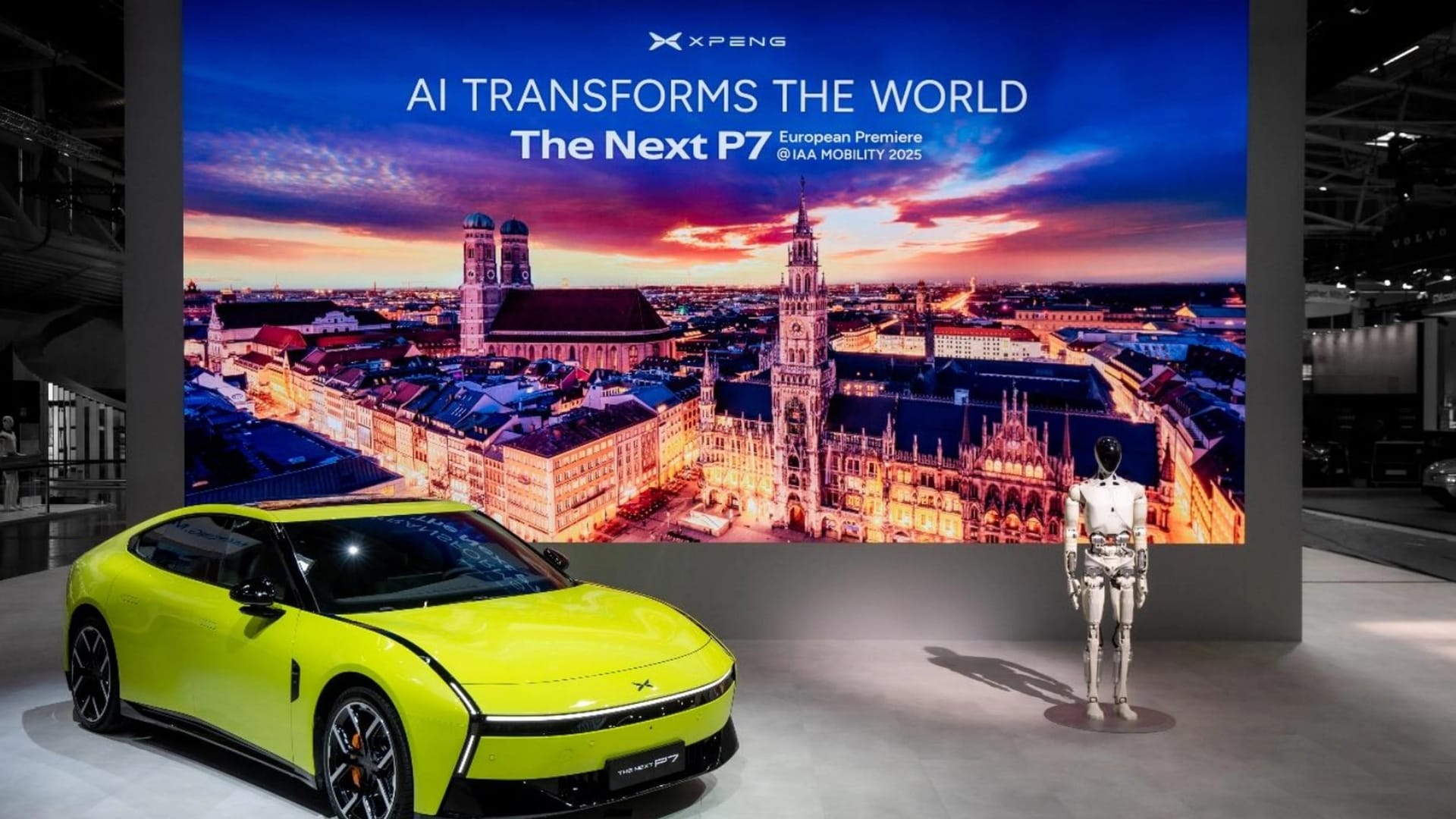XPENG highlights AI-powered mobility at IAA Mobility 2025
XPENG unveils AI cars, flying vehicles, and robots at IAA Mobility 2025, with plans for Level 4 autonomous cars and a European R&D centre.

XPENG has showcased its latest technology breakthroughs at IAA Mobility 2025 in Munich, presenting a range of innovations from AI-driven vehicles to flying cars and humanoid robots. The event also marked the European debut of its Next P7 sports sedan and the announcement of its first European research and development centre in Munich.
Table Of Content
Expanding presence in Europe
XPENG said its new Munich R&D Centre, opening in September, is a major step in its global strategy. The facility will allow the company to work closely with European users, deepen partnerships, and adapt its AI-driven technologies for the region. This will be the company’s ninth R&D hub, joining centres in Silicon Valley, San Diego, and other global locations.
The European market has become central to XPENG’s ambitions. According to a July 2025 survey by German market research firm USCALE, the company became the first Chinese car brand to top the Net Promoter Score in the region, achieving 81 per cent—well above the industry average. XPENG now serves customers in more than 46 markets and ranks as the world’s sixth-largest electric vehicle (EV) maker.
Dr Brian Gu, Vice Chairman and President of XPENG, said the company has grown rapidly since its first appearance at IAA Mobility in 2023. “We now serve users in over 46 markets and will continue expanding globally, delivering innovative products and smart technologies to help accelerate the shift to sustainable mobility,” he said.
Technology and AI integration
At the heart of XPENG’s strategy is its self-developed AI ecosystem, which integrates cloud, vehicle systems, computing power, and hardware. This centralised architecture allows for closer coordination between hardware and software, enabling features such as smart driving systems and autonomous capabilities.
The company plans to roll out mass-produced Level 4 autonomous driving vehicles by 2026, supported by its Navigation Guided Pilot (NGP) system, which is being adapted for global use. Robotaxi trials are also planned in China, with the goal of offering top-class autonomous driving experiences by late 2026.
Chairman and CEO He Xiaopeng emphasised the role of AI in the company’s innovation. “With the Next P7, we are demonstrating to users around the world how AI can transform the car into a warm, intelligent companion,” he said. “XPENG doesn’t just build cars, we are creating smart and sustainable mobility experiences for global users.”
Beyond vehicles: Flying cars and robots
XPENG is also investing in advanced mobility solutions beyond cars. Its flying car subsidiary, XPENG AEROHT, has spent 12 years developing flying vehicles, with seven generations of prototypes completed. This October, the company’s “Land Aircraft Carrier”, the world’s first modular flying car, will make its maiden international flight in Dubai. With 5,000 pre-orders already secured, mass production is expected by late 2026.
In addition, the company is developing humanoid robotics. Its robot, named IRON, has undergone five years of development and is currently being tested in factory environments. Mass production is scheduled for 2026, alongside the launch of XPENG’s next-generation humanoid robot later this year.
At IAA Mobility, XPENG presented five vehicle models, including the G6 and G9 SUVs, the X9 MPV, and the P7+, which it describes as the world’s first AI-defined vehicle. The highlight was the Next P7, a sports sedan delivering 593 PS, 0–100 km/h acceleration in 3.7 seconds, and a top speed of 230 km/h. It recently set a new endurance record for mass-produced EVs, covering 3,961 km in 24 hours.
Founded in 2014, XPENG is positioning itself as a global leader in AI mobility. Headquartered in Guangzhou, China, the company continues to expand internationally, combining electric vehicles with AI technology, robotics, and aerial mobility solutions.
















